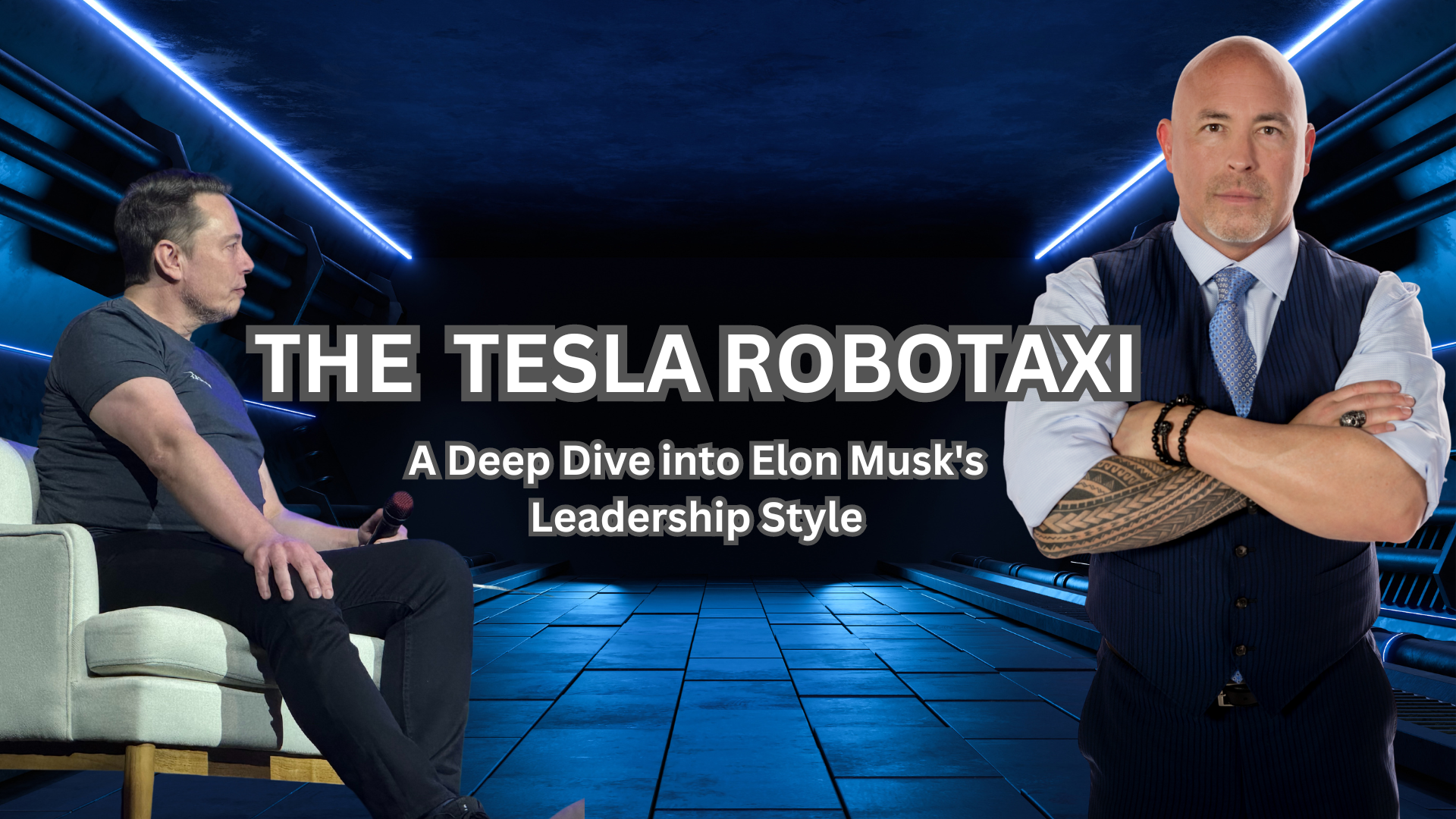Elon Musk, the entrepreneur behind SpaceX, Tesla, and X (formerly Twitter), has once again expanded his portfolio of revolutionary ventures with the announcement of the Tesla Robotaxi. The latest project is another example of Musk’s remarkable ability to lead multiple groundbreaking companies simultaneously.
His trailblazing project, unveiled at a recent event near Los Angeles, represents a bold step towards a future where autonomous vehicles dominate our roads. The Robotaxi, with its sleek design and advanced technology, is another example of Musk’s relentless pursuit of technological advancement and his commitment to reshaping our world.
The Robotaxi: A New Frontier in Transportation
One of the most notable features of the Robotaxi is that it lacks a steering wheel and pedals, underlining its fully autonomous nature. The two-seat configuration is optimized for urban mobility, reflecting a reimagining of personal transportation in city environments.
Unlike traditional cars, the Robotaxi is fully autonomous. It’s equipped with advanced AI and cameras, allowing it to navigate city streets without human intervention. This means no steering wheel, no pedals, and no need for a driver.
It has a sophisticated AI and camera-based navigation system designed to navigate complex urban landscapes without human intervention. It also has advanced charging technology that lets you recharge the battery quickly and easily.
But the Robotaxi isn’t just a mode of transportation; it’s a reimagining of urban living. It’s designed for city streets, making it more convenient and efficient than ever before. And with its affordable price tag and low operating costs, it could become a viable alternative to public transportation.
Perhaps most surprisingly, Musk projects the cost of the Robotaxi to be under $30,000, with a targeted production date of 2026. These ambitious goals reflect Musk’s commitment to making revolutionary technology accessible to the mass market.
Musk’s Secret To Multi-venture Success
The introduction of the Robotaxi venture raises a crucial question: How does Musk manage to lead yet another revolutionary project while still overseeing his existing companies?
The answer may lie in his leadership style, which enables him to effectively juggle multiple complex enterprises simultaneously.
This approach involves:
- Setting a clear vision for each venture
- Establishing robust foundational structures and processes
- Building and empowering strong, capable teams
- Gradually stepping back to allow each venture to operate independently
By creating self-sustaining ecosystems rather than companies dependent on his constant involvement, Musk frees himself to pursue new innovations while ensuring the long-term viability of his existing ventures.
The Two Sides of Musk’s “Built to Exit” Style of Leadership
Musk’s style of leadership is a perfect illustration of the”built to exit” system my company employs to help businesses and business owners reach their full potential. It’s evident in both the companies he currently owns and operates, as well as those he has built and sold. His current portfolio showcases the breadth of his ongoing interests: SpaceX in space exploration, Tesla in electric vehicles and sustainable energy, X (formerly Twitter) in social media, The Boring Company in infrastructure, Neuralink in brain-computer interfaces, and xAI in artificial intelligence. Each of these ventures operates with significant autonomy, allowing Musk to oversee multiple revolutionary projects simultaneously.
On the other side of the coin are the companies Musk has successfully built and exited. Among them are: Zip2, an early online business directory sold to Compaq in 1999 for $307 million, and X.com, which merged to become PayPal and was later sold to eBay for $1.5 billion in 2002. Even SolarCity, founded by Musk’s cousins with his investment, eventually merged with Tesla in a $2.6 billion deal. These exits demonstrate Musk’s ability to not only build companies to a point of self-sufficiency and profitability but also to strategically step away, freeing up resources and attention for new ventures.
The dual approach—maintaining a portfolio of autonomous companies while also knowing when to exit—has been a key factor in Musk’s ability to continually innovate across multiple industries.
Lessons for Leaders and Business Owners
Musk’s own “built to exit” strategy offers valuable insights for leaders at all levels:
- Build a Strong Foundation: Musk’s companies are known for their efficient operations, likely due to well-defined systems and processes that ensure consistency and scalability.
- Invest in Your People: Musk is adept at attracting top talent and empowering them to innovate. By fostering a culture of learning and growth, he ensures his teams are constantly evolving.
- Practice Strategic Disengagement: While deeply involved in high-level strategy, Musk trusts his teams to lead. This allows him to focus on the bigger picture and empowers his employees.
- Balance Present and Future: Musk is always looking ahead, exploring new frontiers, but he’s also mindful of maintaining a stable and profitable business.
- Maintain a Long-Term Vision: Musk’s companies are driven by ambitious goals that go beyond short-term profits. This vision guides his decision-making and inspires his teams.
By following these principles, leaders can build more resilient, innovative, and successful organizations.
Elon Musk’s strategic brilliance lies in his ability to create companies that function at peak efficiency, even without his constant oversight. This approach has freed him up to become a serial innovator, constantly exploring new frontiers and pushing the boundaries of what’s possible across multiple industries.
By building self-sufficient organizations, Musk has effectively created a framework that allows him to continuously reinvent himself and his ventures, solidifying his reputation as one of the most influential entrepreneurs of our time.

